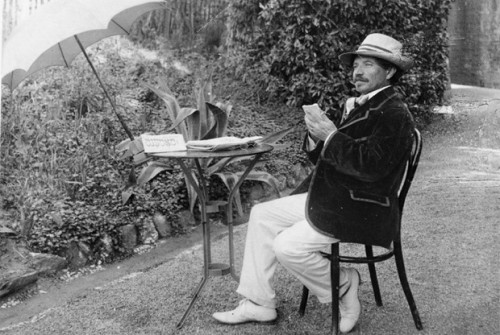If he hits you he loves you
Category: gender, guests
Tags: domestic violence, gender, gender equality
On International Women’s Day viewpoint-east.org focus in an very important question concerning gender equality and human rights! The essay is written by Maria Nilsson, that has written two other articles on viewpoint-east.org before, read them here or here.
I was in the beginning of my twenties and this was only my second visit to the countries called the former Soviet Union. My first visit to Ukraine had resulted in an instant love with everything from the people to the Soviet architecture so when I was admitted to a summer course hosted by a Swedish agency I was more than pleased. Sitting in the, despite the summer temperature outside, cold classroom and listening to a lady with the title Head of the Social Department in the city, I was a little bit less pleased and a little bit more annoyed.
To start with not by the lecture but by my fellow Swedish “classmates” behaviour the last few days. I was the youngest in this course and by everyone’s standards by far the most boring. It appeared that this course was nothing but an opportunity for middle aged (and probably middle life crizing) Swedes to excess in cheap vodka drinking and flirtations. The dead serious “20-something Russian language student” was not their idea of a fun crowd. Therefore my attention was not directed to the comparatively ordinary very Russian looking woman giving the lecture until she uttered the sentence that I will never forget and that has come to follow me in life “If he hits you he loves you”.
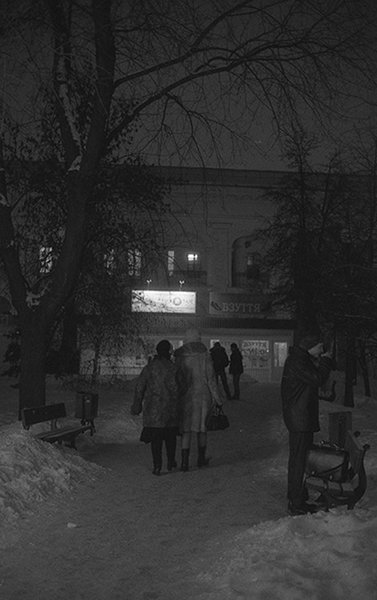
photo: sophie engström
Kyiv, Podil, Feb 2010
As I remember it the lady made this remark upon a question from the audience on how the authorities is battling the high instances of domestic abuse in this country. At that time I was not fluent in Russian and had to wait for the translator until the full meaning of this remark came over me. “If he hits you he loves you”. If this was the official view on the domestic violence I will never know, but as I have come to travel to and live more in the former Soviet union I have realized that domestic violence is not something you address openly at any level.
Several years later, and following the knowledge of working in a women’s rights organisation for a few years, I now strongly believe in the notion of gender based violence being sedimented in the same structures regardless of its occurrence in the middle class Swedish family, the illiterate couple in Africa, a family from Middle East or somewhere in the former Soviet union. It is a question of power and the fact that women are considered by societal structures to be subordinate men. Hence the way in which this problem is addressed by society is determining the ability of preventive measures and support system of the abused women. If society in general shares the idea of “if he hits you he loves you” then there is indication that the problem of domestic violence is considered to be exactly a domestic problem, where the authorities have no mandate to interfere and problems occurring in this sphere should also be resolved within the private walls of the home.
Travelling and living in the former Soviet Union I have come to realise two things; there are very few women’s shelter outside of the big cities and secondly, many women blame themselves for being abused as well consider the husband or boyfriend to be the “real” victim. In example “I did not make him proper supper”, “He can’t handle not having a job”, although the latter is not different comparing to other contexts.
I have met women behind the phrase “if the hits you he loves you” and I don’t think that Elena after being repeatedly abused by her alcoholic husband and after which he in a drunken moment threw her little girl off the balcony, would ever consider this phrase to be correct. Her bruises both inside and outside will never permanently go away. The husband was not even sentence to jail. Elena herself did not believe that she deserved anything else and found herself in yet another abusive relationship believing that her life was over long before it should be
Discussing gender in development cooperation and foreign relations is often about gender mainstreaming and so called gender perspective. The question is if this is enough? More attention must be paid to domestic violence and start treating it as it is – a violation against human rights.


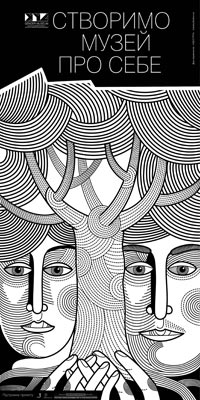
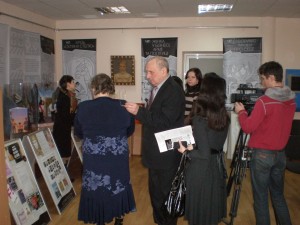
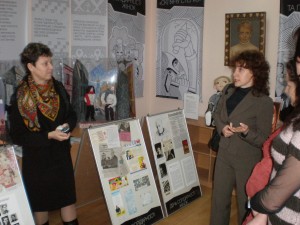



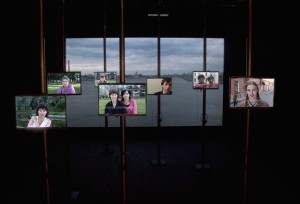 State of Mind consolidates to a trilogy together with Resonance and Code of Silence. In different ways these lens-based art installations cast light on aspects of socially and culturally constructed identity-based groups in contemporary society. Photography and video are used in combination to expand on the separate histories of the two media with regard to interviews and portraits in documentary genres. This is the point of departure for all three installations. As for the overall narrative, the topics of how and why different groupings construct networks and communities in order to achieve a sense of belonging are in focus, as well as the conditions and necessities for forming the community. The projects look at the social conventions family, love and career, dealing with power relations such as gender, ethnicity, sexual orientation and class. The method of collecting the material in fieldwork is similar in the three projects, but the questions asked and issues raised are specific to each segment of the installations. Portraiture and personally based stories are central. The trilogy is presented as three separate art installations, which co-exist and cross-inform each other. They reflect upon civil rights issues and the idea of being safe and productive within society, working in the space between personal choice and social expectations. Memory, narration, visual representation and oral history are central. In each of the three works a different group is approached that relates to the artists’ personal lives. Resonance [Resonance was exhibited at Norrköping Art Museum, Göteborgs Konsthall and Uppsala Museum of Art during 2006-2007.], our first collaboration, is based on a network of peers belonging to a successful generation of artists and curators. They are all women who made an entrance onto the Swedish and Danish art scene in the 1990´s, and now have international careers. On one level Resonance is an examination of the Scandinavian welfare state, and in more specific terms, the impact of the conditions it creates for the portrayed women to make it on the art scene. In Code of Silence [Code of Silence will be ready to be launched in 2009.] this is a sibling group of five who grew up on a small farm in rural Gothenburg, Sweden. The farm had to face the challenge of major cultural reforms in the nineteenth century, but remained intact. It became a target for expropriation during the 1950´s and 70´s to make way for the reforms involved in building the modern Sweden. Hence, it remained an object of possible interest for the national cultural heritage. The farm was finally demolished in 2004. Code of Silence is based on oral history, memories told by the siblings infringing the UN’s Declaration of Human Rights paragraph 17 relating to everyone’s right to a home. In addition this installation includes a large number of private and official documents such as hand-written wills, receipts from selling milk, and letters to the King of Sweden. State of Mind explores everyday life and the boundaries between ethics, legislation, prejudice and civic expectations in the LGBTQ [Lesbian, Gay, Bisexual, Transsexual, Queer] life of St. Petersburg, Russia. It emphasizes individuals identifying as lesbians or bisexual women.
State of Mind consolidates to a trilogy together with Resonance and Code of Silence. In different ways these lens-based art installations cast light on aspects of socially and culturally constructed identity-based groups in contemporary society. Photography and video are used in combination to expand on the separate histories of the two media with regard to interviews and portraits in documentary genres. This is the point of departure for all three installations. As for the overall narrative, the topics of how and why different groupings construct networks and communities in order to achieve a sense of belonging are in focus, as well as the conditions and necessities for forming the community. The projects look at the social conventions family, love and career, dealing with power relations such as gender, ethnicity, sexual orientation and class. The method of collecting the material in fieldwork is similar in the three projects, but the questions asked and issues raised are specific to each segment of the installations. Portraiture and personally based stories are central. The trilogy is presented as three separate art installations, which co-exist and cross-inform each other. They reflect upon civil rights issues and the idea of being safe and productive within society, working in the space between personal choice and social expectations. Memory, narration, visual representation and oral history are central. In each of the three works a different group is approached that relates to the artists’ personal lives. Resonance [Resonance was exhibited at Norrköping Art Museum, Göteborgs Konsthall and Uppsala Museum of Art during 2006-2007.], our first collaboration, is based on a network of peers belonging to a successful generation of artists and curators. They are all women who made an entrance onto the Swedish and Danish art scene in the 1990´s, and now have international careers. On one level Resonance is an examination of the Scandinavian welfare state, and in more specific terms, the impact of the conditions it creates for the portrayed women to make it on the art scene. In Code of Silence [Code of Silence will be ready to be launched in 2009.] this is a sibling group of five who grew up on a small farm in rural Gothenburg, Sweden. The farm had to face the challenge of major cultural reforms in the nineteenth century, but remained intact. It became a target for expropriation during the 1950´s and 70´s to make way for the reforms involved in building the modern Sweden. Hence, it remained an object of possible interest for the national cultural heritage. The farm was finally demolished in 2004. Code of Silence is based on oral history, memories told by the siblings infringing the UN’s Declaration of Human Rights paragraph 17 relating to everyone’s right to a home. In addition this installation includes a large number of private and official documents such as hand-written wills, receipts from selling milk, and letters to the King of Sweden. State of Mind explores everyday life and the boundaries between ethics, legislation, prejudice and civic expectations in the LGBTQ [Lesbian, Gay, Bisexual, Transsexual, Queer] life of St. Petersburg, Russia. It emphasizes individuals identifying as lesbians or bisexual women.
